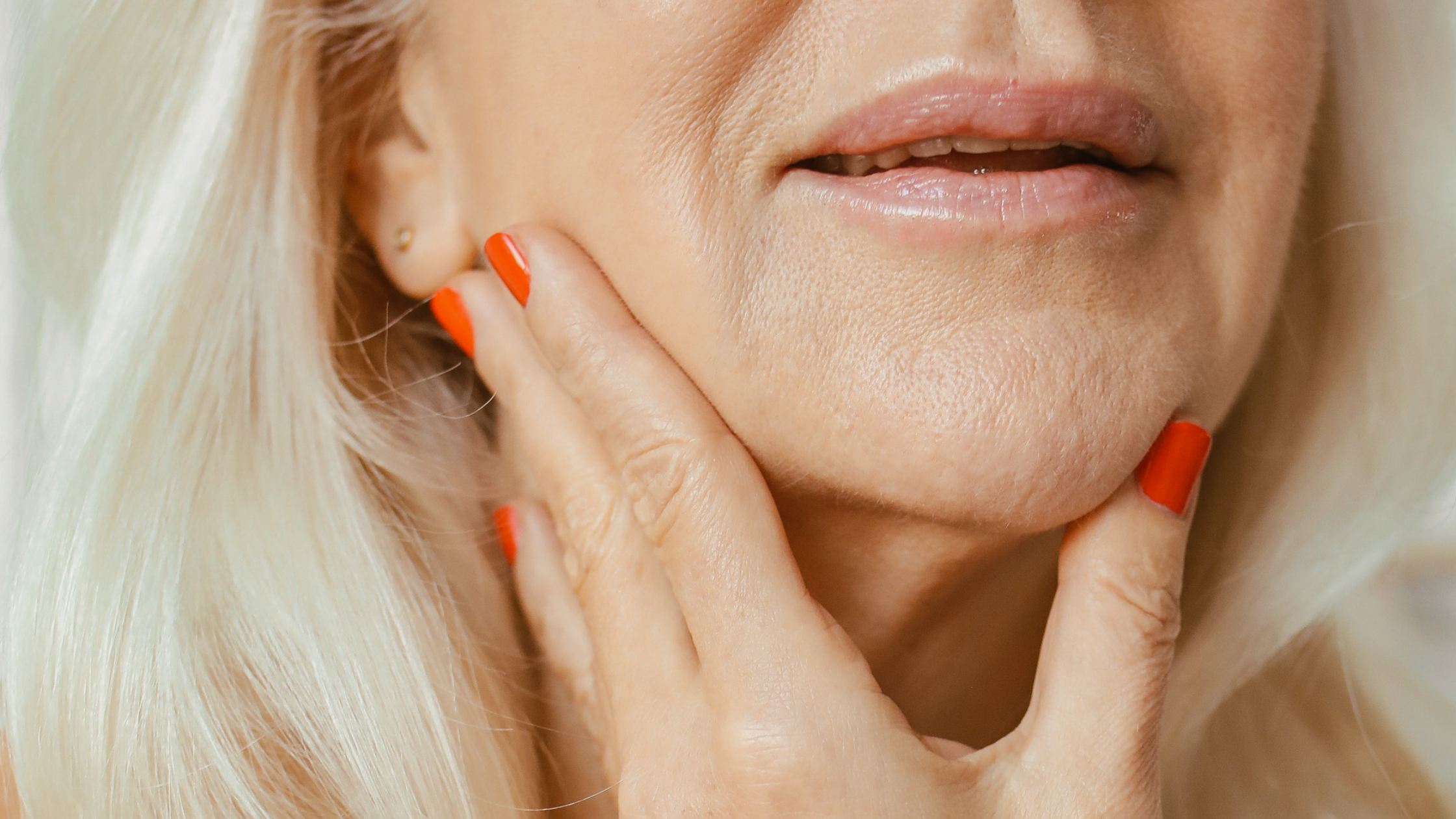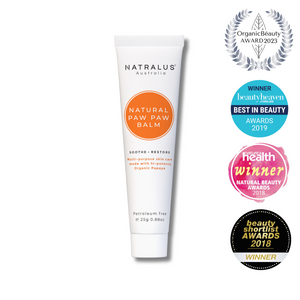There's no getting away from it, none of us are getting any younger! As we grow older, our bodies undergo a whole range of physiological changes: the skin is no exception. The largest organ in the body, skin is responsible for a whole host of functions, including secretion, temperature regulation, sensation, excretion, and supporting the immune system. As skin ages, its composition and structure changes; this not only reduces its functional efficiency, but it also causes an altered appearance. From wrinkles and folds through to blemishes, roughness, itching and redness, ageing skin can be uncomfortable.
Obviously we can't turn back the clock, but we thought it would be useful to take a look at what the major ageing changes are and what lifestyle changes can slow them down as much as possible. In addition, we've come up with a number of ingredients which are scientifically proven to support the body in reducing the visible signs of ageing, potentially leading to a smoother, more vibrant skin. Read on to discover what you can do to keep your skin in excellent condition for as long as possible.
What happens to skin as we age?
The composition of skin changes throughout life - from smooth, soft baby skin through to older, rougher skin, the structure of the skin never remains the same. With age, a number of distinct changes occur:
- the epidermis thins, leading to skin becoming more translucent and thinner
- there is a decrease in the amount of elastin in the skin, leading to sagging
- reduced collagen contributes to wrinkles and a loss of firmness
- the skin becomes increasingly fragile
- discolouration and lesions may develop on the skin (liver spots, for example)
- blood vessels becomes more fragile and the blood supply to the skin is reduced. This means cell renewal is slower and wounds take longer to heal. It also causes hair follicles to waste away (atrophy), potentially leading to hair loss.
The result of all these changes is a more delicate skin which lacks the firmness and vibrancy of younger skin. Although genetics has a role to play in how fast skin ages, external factors also play a key role. If you want to keep your skin as youthful as possible for as long as possible, the following pointers could make a real difference:
Stay out of the sun
The destructive effects of the sun on skin are well-known: UV light damages the skin, accelerating the loss of elastin which is associated with many of the negative visual effects of ageing. Not only that, UV light can also damage the skin cells at a more fundamental level, increasing the likelihood of a cancerous cell mutation at a later date. For all these reasons, avoiding the sun (particularly during the hottest part of the day), covering up and wearing an effective sun screen are all important ways of protecting your skin.
Reduce exposure to pollutants
Unfortunately, pollutants are everywhere. From exhaust fumes and cigarette smoke to industrial pollution and contamination from the chemicals which are found in anything from soft furnishings to plastic, it's virtually impossible to get away from all the harmful substances which may affect the skin. Obviously it makes sense not to smoke, but other than that, a good barrier cream can be the best way of protecting the skin from pollutants.
Get enough sleep
Sleep has many beneficial effects, especially on skin. Sufficient sleep reduces the production of cortisol, a stress hormone which causes an inflammatory effect on the skin. Sleep deprivation adversely affects the body's immune system, leading to the worsening of any skin conditions which are dependent on immunity. For these reasons as well as for the other health benefits which sleep brings, it's important to set time aside for adequate rest.
Avoid alcohol
Excess alcohol dehydrates the skin, increasing the risk of flaking, itching and redness. Over time, excessive alcohol may cause the skin to appear puffy.
Eat healthily
Fruit and vegetables contain a wealth of vitamins and minerals which can support the regeneration and rejuvenation of skin. Aim for at least five servings, with ten as an optimal goal!
Natural, organic skincare could lead to better skin conditions
As mentioned earlier, a good moisturiser or barrier cream, as well as regular cleansing to remove potentially damaging pollutants, could really make a difference to skin health. Unfortunately, many skincare preparations contain harsh, synthetic ingredients which upset the skin's natural balance. Used regularly, they may cause skin problems. That's why, when it comes to skin protection, gentle yet effective ingredients are vital. A plant-based product harnesses compounds found in nature which are effective in supporting skin health in a number of different ways.
Organic, plant-based ingredients - the safe alternative
We recommend the use of organic ingredients where possible. Unfortunately, the toxic pesticides and herbicides used on plants which are grown conventionally can be carried from the leaves and soil into the heart of the plant, alongside water and nutrients. This means that the chemicals are still present in the plant after harvesting. Organic production virtually eliminates this risk, ensuring you end up with ingredients which are as pure and powerful as possible.
Our range of skincare products have been developed with the health of the skin a priority. Ingredients such as aloe vera, scientifically proven to contain anti-oxidants and antibacterial agents; paw-paw, which contains healing enzymes; and coconut oil, a well-known moisturiser that nourishes and supports healthy skin growth, are all shown to have a beneficial effect on the skin.
Our formulations are rigorously tested for effectiveness and are designed to provide lasting effects, particularly if used regularly. Ideal to moisturise dry skin, assist in skin rejuvenation, protect the skin from the effects of pollutants and sunlight and potentially enhance appearance, each of our natural skincare products has been designed for a specific skin type and purpose.
Whilst ageing is inevitable, the fast decline of your skin and its appearance isn't. Start making positive changes now to benefit your skin in both the short- and long-term.
Try Our Paw Paw Balm for Fine Lines and Anti-Aging Benefits.






